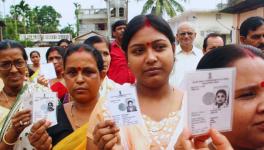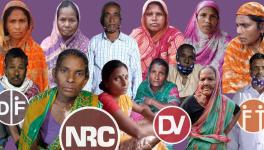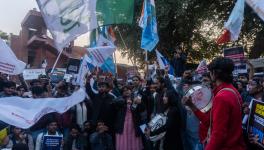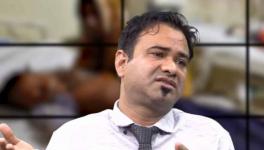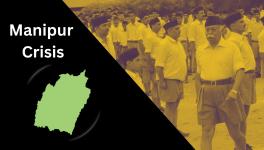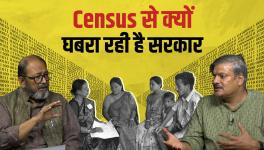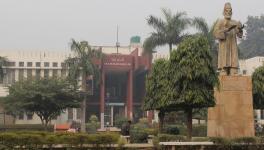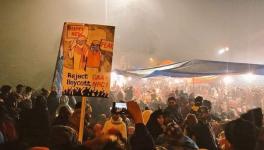How Long Do People Need to Live in a Place to Become a Local?
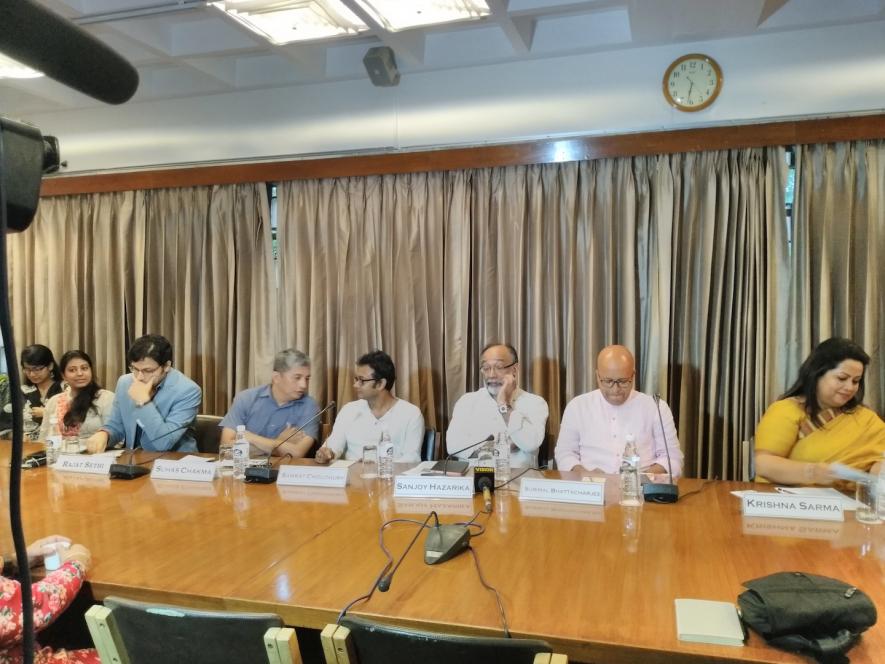
The Good World Foundation, a Shillong-based organisation convened a discussion on the National Register of Citizens (NRC) at the India International Centre in Delhi, on Monday. The title of the discussion organised in collaboration with the India International Centre was: Insiders and Outsiders: Issues of Citizenship and Belonging in Northeast India. The panel consisted of Sanjoy Hazarika, Suhas Chakma, Subimal Bhattacharjee, Krishna Sarma, Rajat Sethi, while Samrat Choudhury was the moderator.
Also Read: Assam: The Mythology of “Immigrants”
The discussion commenced with Choudhury highlighting several questions like whether the Indo-Bangladesh border is much of a border at all, how were the previous estimates of immigrants arrived at, and whether any of these estimates were or are accurate. It must be noted here that the previous estimates of the number of “illegal” immigrants ranged from 50 lakh to 80 lakh. From this perspective, the figure of a little over 40 lakh does not come close to the scale that had been alleged. This figure does not pertain to people belonging to a particular religious or linguistic group, but also many people who are perceived in one way or another as 'indigenous' to Assam.
Also Read: Why ILP and NRC Demands Have to be Seen Together
Suhas Chakma, the director of Rights and Risks Analysis Group, opined that whatever steps are taken, those must conform to the 'rule of law', meaning it must pass the test of Article 14 of the Constitution of India. Another major point he highlighted was that India lacks a refugee law, let alone an immigration policy. According to him, the entire process stems from xenophobia and racism, and that it is a veiled attempt of ethnic cleansing. He also referred to his own community – the Chakmas – who have lived in Assam since before partition. There are around 2,000 Chakmas, who are designated as a Scheduled Tribe (ST). He claimed that chances are that all 2,000 of them have been left out of the final draft NRC. He also referred to Pramod Boro, president of All Bodo Students’ Union (ABSU), who told him that around 5 lakh Assamese tribal people have been left out of the NRC.
Also Read: The Unheard Voices In The NRC Din Speak Up
Highlighting these issues with the process, Chakma stated that the problem is what will come after the NRC is complete. The people, who will not find a place in the final NRC, cannot be deported, as there is no agreement with Bangladesh. The Citizenship Bill, 2016 will not work, as it cannot pass the test of Article 14. Therefore, the issue of “what next” is one that has to be kept in mind. He also said that the NRC may have a domino effect if it is successful.
Also Read: Other States Too Are Demanding an NRC
Subimal Bhattacharjee, the director of Jookto, a grassroots organisation in the Barak Valley opened his address by stating that there is an issue of immigration that has largely been ignored. He referred to Prafulla Kumar Mahanta's Asom Gana Parishad government 'frittering' away the goodwill by doing nothing about the very issue that made him the chief minister. His stand was that the NRC must be seen through to its logical conclusion. The figure that arises at the end must be acceptable, and that the issue must be put to rest. He stated that he did not accept that there was a communal angle to the NRC process.
Krishna Sarma, a managing partner in Corporate Law Group had also represented the state of Assam, and been involved in the legal battles around the NRC. She began by highlighting Tripura as an example of what can go wrong if certain checks are not in place to protect native inhabitants from unabated immigration. She also mentioned that around Guwahati, one can see a very visible demographic change taking place. Referring to the Assam Accord of 1985, she also lamented that no government had taken any steps to implement it, and that everybody was to blame for this. She traced the origin of the current NRC process from the 2009 petition filed by Assam Public Works. However, the legal hurdle that the process will face is based on Kapil Sibal's representation in 2014 that certain questions regarding the NRC and citizenship can be heard only by a Constitution Bench. At present, the matter is being dealt with by a Division Bench, the Constitution Bench is yet to be formed. The crux of the issue that the Constitution Bench has to hear is regarding the children born to those who have not been included in the NRC. This arises as the Citizenship Act provides citizenship to those born in India. Her final take was that the NRC is indeed needed. India must sign an Agreement with Bangladesh, and that the borders must be effectively manned to prevent future undocumented crossings.
Also Read:Months Before Elections in MP, BJP Mulls to Add NRC to the Election Manifesto
Rajat Sethi, an advisor to the chief minister of Manipur, and the author of the book The Last Battle of Saraighat took a clear pro-Bharatiya Janata Party (BJP) stand. He began predictably by legitimising the Citizenship Bill by blaming former PM Jawaharlal Nehru. He spoke about the BJP's promise to bring development to the region, he tied this to the NRC, as by identifying the “illegal immigrants”, jobs for locals would open up. Referring to the Prime Minister Modi’s stand on the issue, he stated that Modi felt that the religious and politically persecuted minorities have no place to go to, other than India. In this regard, differentiating between immigrants and refugees is a must. Ironically, this tied in with Suhas Chakma's observation that India does not have a definite policy on either issue.
Also Read: Is The Opposition Playing into the Hands of BJP on the NRC Issue? )
Sanjoy Hazarika, the director of Commonwealth Human Rights Initiative stated that the issue is not only about the NRC, and in fact goes beyond the current process. He referred to what some may call the tyranny of nation states by mentioning that the Armed Forces (Special Powers) Act is institutionalised discrimination. In this regard, the NRC cannot solve the problem, particularly, as it is bound by Article 21. Following this train of thought, he posed the question: “How long do people need to live in a place to become local?” In this light, he referred to the unrest in Shillong where the Mazhabi Sikhs had been living in the locality for 150 years and were still deemed 'outsiders'.
He stated that the NRC is long overdue. However, considering the amount of time that has passed since 1985, deportation is not an option. Thus, he referred to the idea he had mooted in Rites of Passage in the late 1990s, wherein a system of work and residence permits can be issued in lieu of citizenship or deportation. He stated that the people cannot be declared stateless, as it is inhuman to do so. Further, he stated that the detention camps are not a solution either. In this regard, he also questioned how long the people deemed foreigners could be disenfranchised, whether the disenfranchisement would be inherited by their children and descendants. Keeping in mind that India has been “hopeless in settling refugees”, he mooted the idea that reservation for 'indigenous' people is an option. Echoing the views of Chakma and Sarma, he mentioned that India should negotiate with Bangladesh on this issue. The final and perhaps most radical of his suggestions was declaring amnesty for all the undocumented immigrants.
What emerged from the discussion was that the actual stakeholders – all the panellists, apart from Sethi – were non-partisan in their approach, and were actively looking for a lasting solution. The three panellists from Assam supported the NRC process, and were acutely aware of the manner in which it had been reported in the press. They, however, were hopeful, as the violence and hatred that so many had predicted never occurred. The one point on which all the panellists agreed was that the process of claims and objections will have a disastrous impact on the poor as they already have little access to legal counsel. However, the general mood was that the process should be complete and final, and that the issue of immigration should be put to rest. Or as Hazarika put it, “The law will take its course; the NRC will take its course.”
Get the latest reports & analysis with people's perspective on Protests, movements & deep analytical videos, discussions of the current affairs in your Telegram app. Subscribe to NewsClick's Telegram channel & get Real-Time updates on stories, as they get published on our website.










